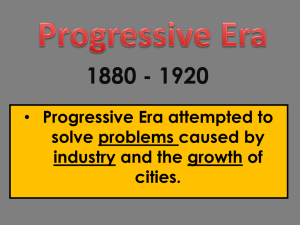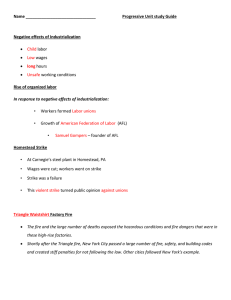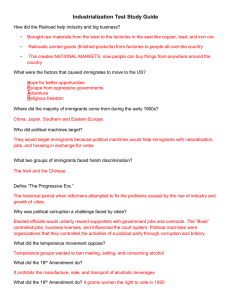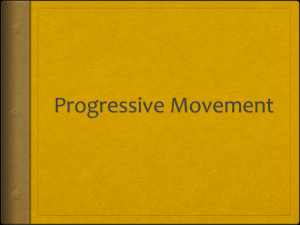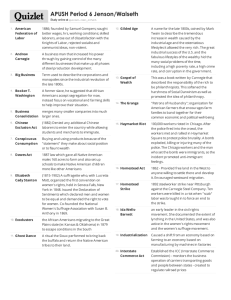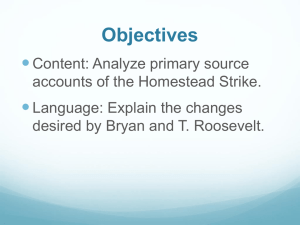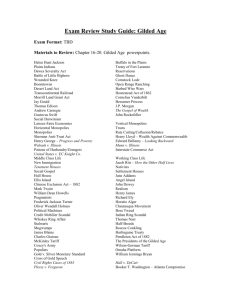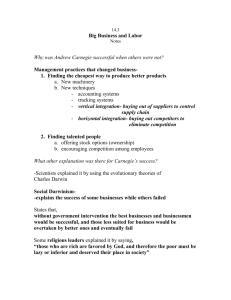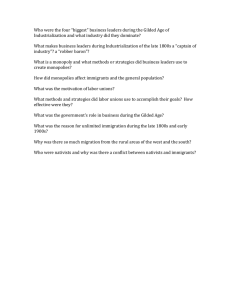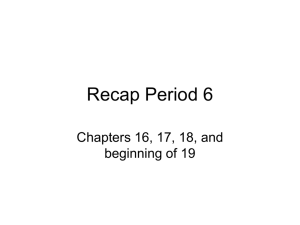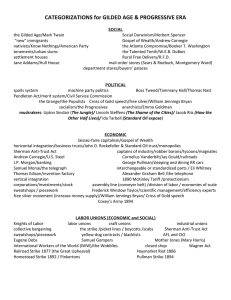The Progressive Era ( – _____________)
advertisement
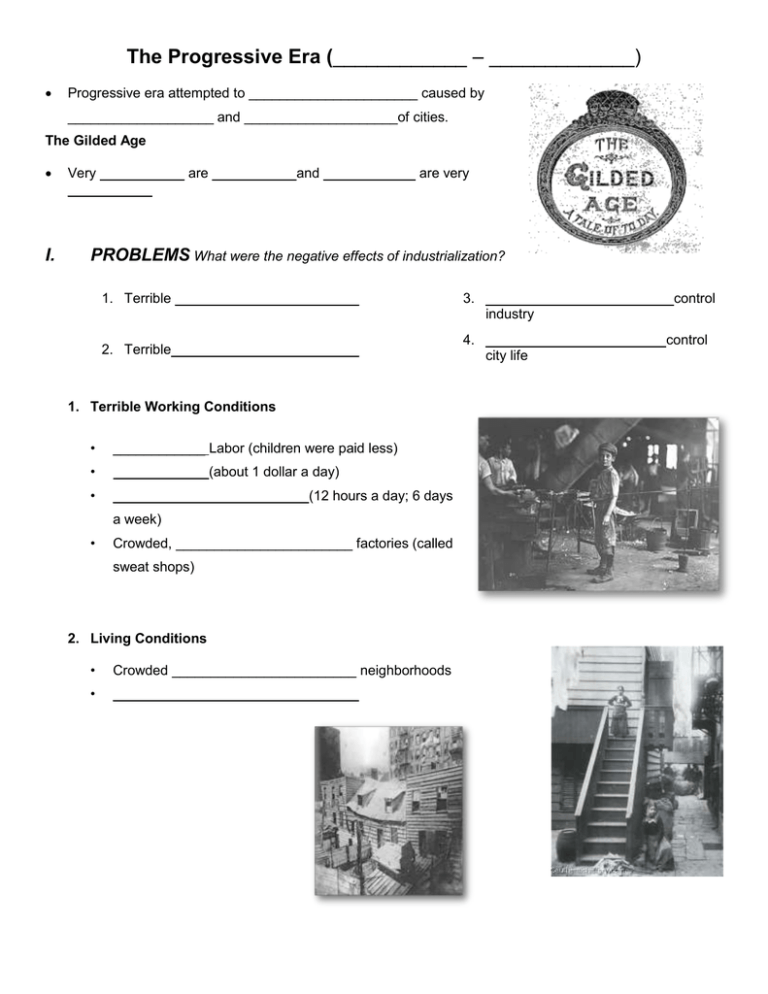
The Progressive Era (____________ – _____________) Progressive era attempted to ______________________ caused by ___________________ and ____________________of cities. The Gilded Age I. Very ___________ are ___________and ____________ are very ___________ PROBLEMS What were the negative effects of industrialization? 1. Terrible ________________________ 2. Terrible ________________________ 1. Terrible Working Conditions • ____________ Labor (children were paid less) • • (about 1 dollar a day) _________________________ (12 hours a day; 6 days a week) • Crowded, _______________________ factories (called sweat shops) 2. Living Conditions • Crowded ________________________ neighborhoods • ________________________________ 3. ________________________ control industry 4. _______________________ control city life 3. Monopolies • Raised and lowered ______________________ of goods at will • _______________________ for pricing • No other companies for jobs - could pay ______________ whatever they wanted 4. Political Machines • All power in the hands of the “___________” • They __________________ every _________________ of city ____________: who can open a business, who worked in government jobs • _____________________ – businesses and bosses conspired to steal money from the city • Really rich see no ___________________ in the current system. The very__________________, on whose backs the country is built, are ______________________ and barely scraping by. II. SOLUTIONS How did this change happen? 1. Muckrakers Muckrakers: ____________________________ who exposed problems _____________________: The Jungle _____________________: How the Other Half Lived 2. Labor Unions Labor Union: An organization of______________________ that fights for better____________________ ________________________________ Why did Labor Unions form? • To improve ____________________ hours (less hours) • To receive ______________________________ • For better working ______________________ • One of the most important unions was the ___________________ ____________________________________________ 3. Strikes STRIKE: Workers _____________________ until they receive better ________________________ or pay. _______________________________ • In 1892 _________________ lowered wages at his steel mill in Homestead, PA (near Pittsburgh) • The _________________ went on strike. • • The strike turned violent and ____________________ died. This caused many Americans to turn ___________________ because they blamed the union for the _______________________ III. IMPROVEMENTS ARE MADE! Working Conditions: • Work day ____________________________ • ___________________________________ passed • Wages ________________________________ • _____________________________ Regulations – _____________________________: laws that protect goods people buy, food they eat, places they work, and their political voice Living Conditions: • ____________________________ – provided medical care, playgrounds, nurseries, and libraries – • Middle class women would live in “settlement houses” to help the poor. _______________________ created the ___________________ (Chicago, IL) – Most famous settlement house in the USA Busting Those Trusts! • Monopoly = ___________________________ • _____________________________ 1890 – law that limits the power of monopolies • _____________________________ – Known as the __________________ for challenging monopolies – 1911 Standard Oil is “busted” into 5 major oil companies and several smaller ones WOMEN’S SUFFRAGE IV. • Suffrage – _________________________________________ • Women were not guaranteed the right to vote until 1920 • Suffragists – like ______________________________worked for women’s suffrage • ___________________________________________ grants women the right to vote in 1920 V. TEMPERANCE MOVEMENT • Some considered alcohol ______________________________ • Temperance groups wanted to ban _______________________________, selling, and ____________________________ alcohol • ______________________________________ – prohibits the manufacture, sale, and transport of alcoholic beverages • _______________________________ = 1919-1933
